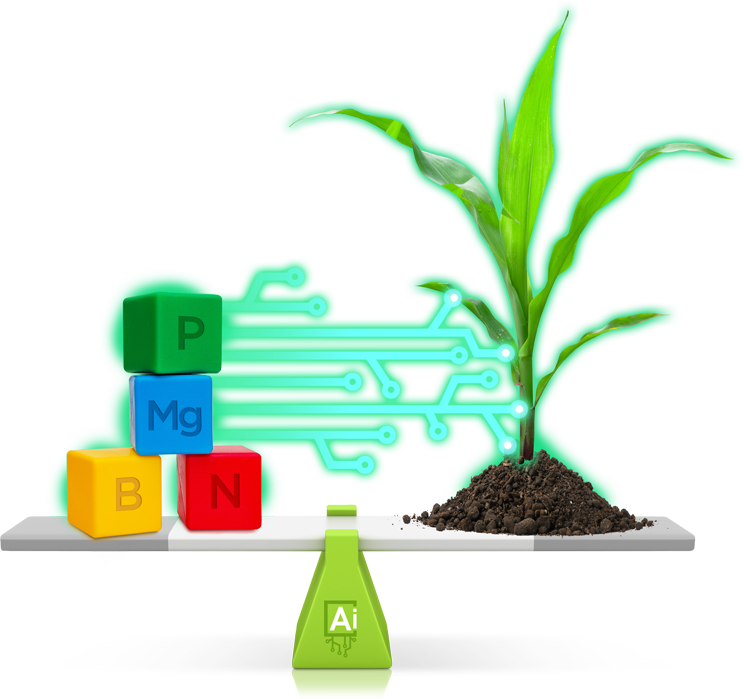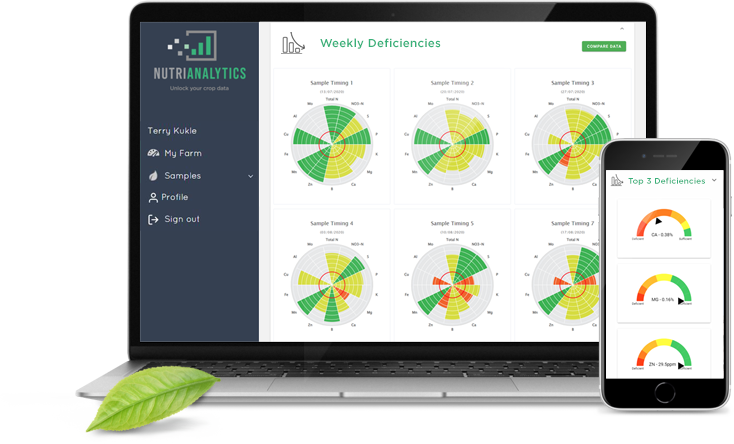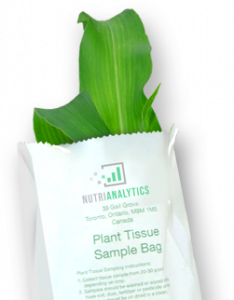balance is
the key.


- Our NutriLab® analyzes tissue samples to unlock data
- Predict marketable yield potential
- Deliver unique crop specific foliar recommendations
- Maximize nutrient use efficiency
- Improve your ROI on inputs
- Keep it simple by leveraging traditional tissue sampling methods
- Help you grow the healthiest crops possible
- Provide a dashboard of all your information
- We service farms across the USA and Canada

This Atlantic Canada potato model suggests that by increasing the concentration of Manganese we can achieve improved yields even when macronutrient levels remain the same. In fact, the smoothing of the potential yield improvement curves to macronutrients when Mn in increased suggest improvements in nutrient use efficiency for N, P, and K. The key here is quantifying and interacting with the concept of Nutrient Balance.
Move the slider to increase the Manganese

Analysis by region, crop, variety & soil type
Precise and unique recommendations
Optimize nutrient use efficiency
Leverages artificial intelligence with historical yield data to run crop models
Old methods don’t work anymore and historical critical values no longer apply. It will help you exceed your yield expectations
When our NutriLab unlocks the data we see improvements for higher yields and more quality crops, that our competitors can’t, Plus, we don’t just give you meaningless information to work from, we quantify and evaluate the nutrient mix and show you on a sliding scale how to use the information to reach your goals.
- By identifying which nutrients are disrupting the balance
- recommending the best intervention methods to bring the nutrients back into balance
- showing you improvements for more quality and higher yields
- using historical data for each field to provide more accurate recommendations
- We relate tissue samples to finished yields
- This enables us to see improvements for growth, where others can’t
- We often see yield responses that are way above the critical levels
- It’s important to note that critical levels are from the 50’s and 60’s and in most cases are not region specific which means someone in Ontario and someone in Atlantic Canada are using the same levels, which makes no sense
- Our data also proves how these critical levels are out of date and not accurate anymore because a lot has changed since then including farming practices, crop varieties, growing products, growing conditions, etc.
- Plus, growing practices change based on your growing goals i.e. apples thar are more red or potatoes that stay small and sold as baby potatoes, etc.
We make it sound simple, but it isn’t, because as soon as you change the level of one nutrient it impacts the other nutrients – it’s all about balance.
- We truly understanding the inner workings of how nutrients impact plant growth
- We truly understand how to create nutrient-balance and know that one change can throw off the entire balance
- We combine human farming expertise with a very smart computer (that we built) to interpret the data/information and implement mitigating strategies
- We look at many nutrients as we can and all in real time, to help us with the decision-making
- The more nutrients we look at lowers the percentage of errors and misclassifications and guarantees better results
- Plus, understanding that simply increasing the level of one nutrient doesn’t always work
- Initially it can show an immediate increase in yield potential, but that may not be a good thing
- Because it can just as quickly decrease the yield due to the imbalance of nutrients
- It’s important to note that anyone can collect data, but data without someone to interpret the crop insights and provide the answers, is just a big pile of data
- Processing this volume of data can only be done using our AI (artificial intelligence) algorithm
- The human brain can’t physically compute all the different data sets in a way that makes sense to us
- Our AI (artificial intelligence) algorithm analyzes the tissue sample data and compares it with historical yield information
- Together with the algorithm our people who are experienced agronomists make recommendations for a healthy and balanced supply of nutrients to improve marketable yield potential to meet your goals
- Our experts are farmers and agronomists
- We built the AI algorithm from scratch
- We have computer science majors and PhDs in agriculture
- We are committed to studying how plant nutrition relates to plant performance
- We basically teach the computer to learn how to think like an experienced farmer
- We chose not to approach computer science engineers who work in tech hubs around the world, we wanted to build it and teach it using our farming experience
- Because the true value in our AI algorithm is our farming knowledge

